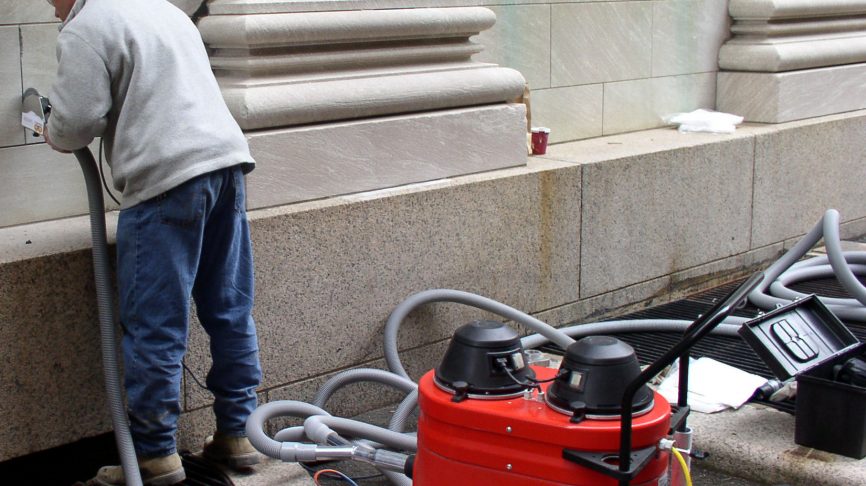Construction jobs can be messy, especially when they involve working with concrete materials. When blasted or ground, concrete becomes an ultra fine dust or powder that is easily airborne. It not only coats the surfaces around it and makes for a pain-staking clean-up, but concrete dust can irritate workers breathing and eye sight as well even if they are using the proper safety masks and eye wear. Good housekeeping practices extend beyond the work floor and go off-site here at Dust In Case. This is not just for worker safety, but for making life on the job easier as well. It therefore begs the question: Which kind of vacuum should you use for concrete dust? Here is what you should look for when choosing the best industrial vacuum cleaner for your concrete job…
- Choose a vacuum made from compression cast composite housing. This is a heavy duty material that will ensure the vacuum will not dent, break or rust while being used in a more rugged environment such as a construction job.
- Use an industrial vacuum that is powerful enough to be attached to concrete grinders, scarifiers, crack saws, blast machines and other construction tools. Vacuum-assisted tools mean that dust will be extracted from the point upon being produced.
- Ensure that your industrial vacuum is equipped with proper filtration. For example, Ruwac’s industry-leading MicroClean filter is 99.9% efficient at 0.5 microns, preventing filter clogs and cutting down on costly filter replacements.
- For concrete jobs involving bridge work or being in a remote location where electricity is not an option, a gas or propane-powered industrial vacuum can be used.
- For concrete jobs involving sludge, liquids and the separation of concrete chips, choose a wet / slurry industrial vacuum that is capable of vacuuming and pumping out liquids at the same time, allowing for continuous use.
- Foot-actuated dustpans and drum separators allow for effortless, dust-free emptying.
Other factors to take into consideration are the number of operators you would like your industrial vacuum cleaner to be able to handle, the ability to use longer hose lengths, and whether or not optional HEPA or ULPA filtration is needed for air purification. While most of these points will also need to take into account exactly what type of concrete job you are planning, these tips will provide you solid foundation in choosing the right industrial vacuum cleaner for removing concrete dust efficiently!


